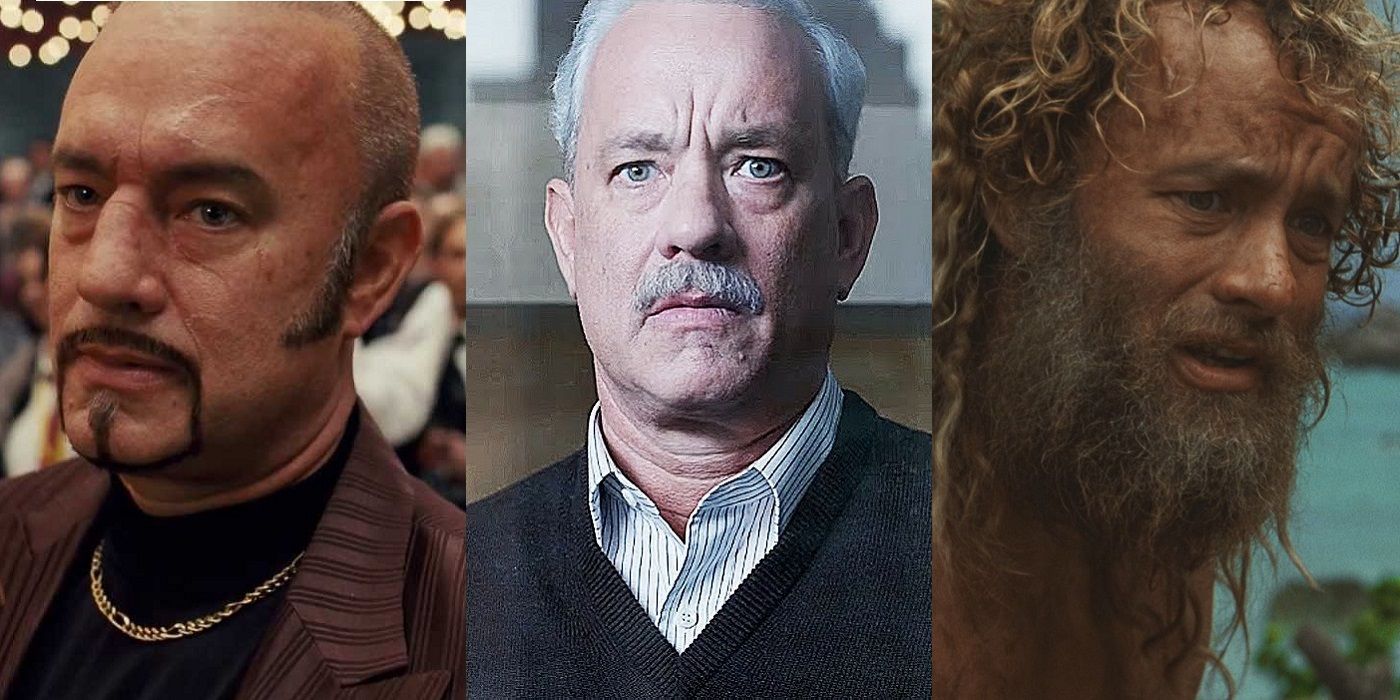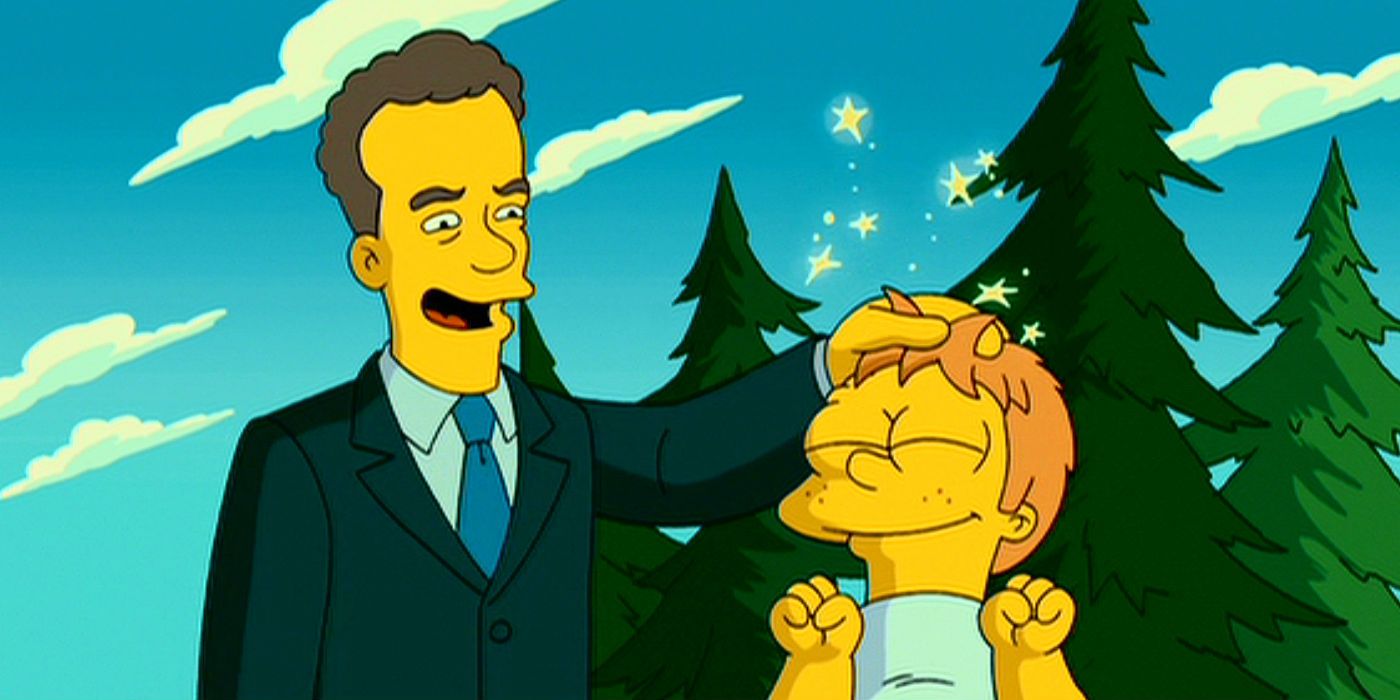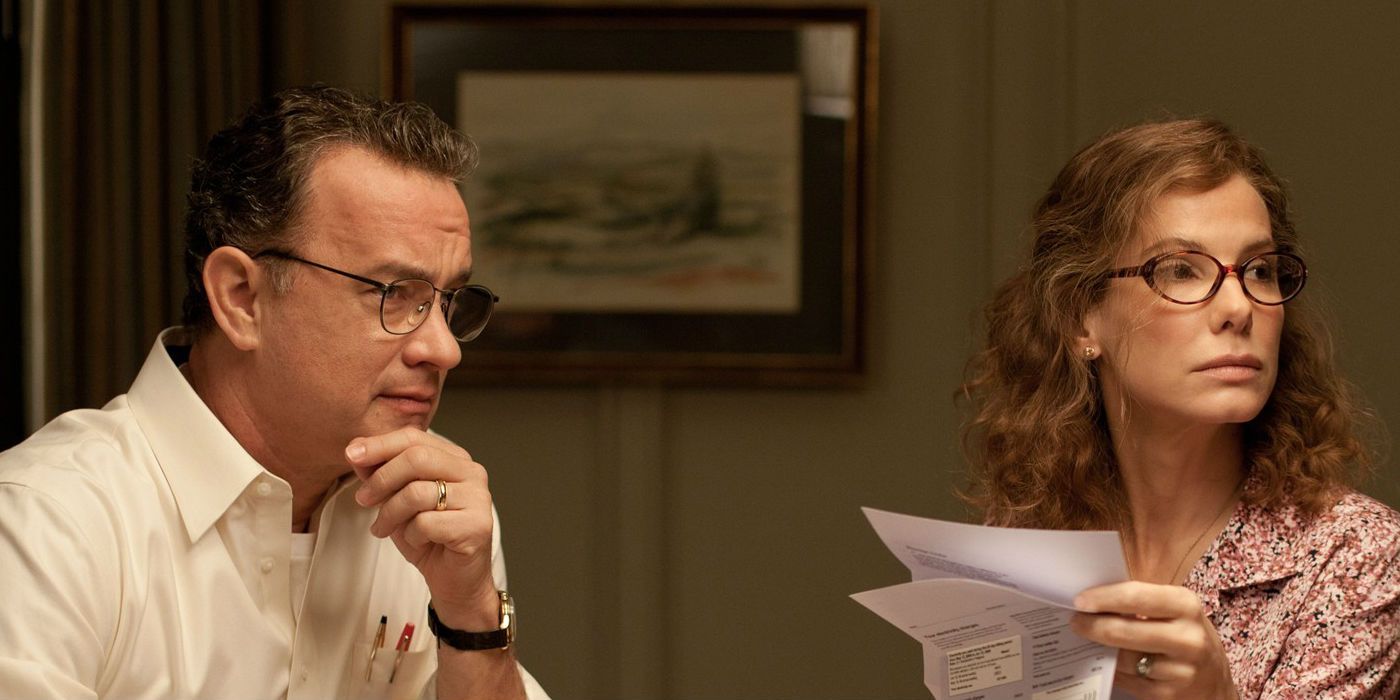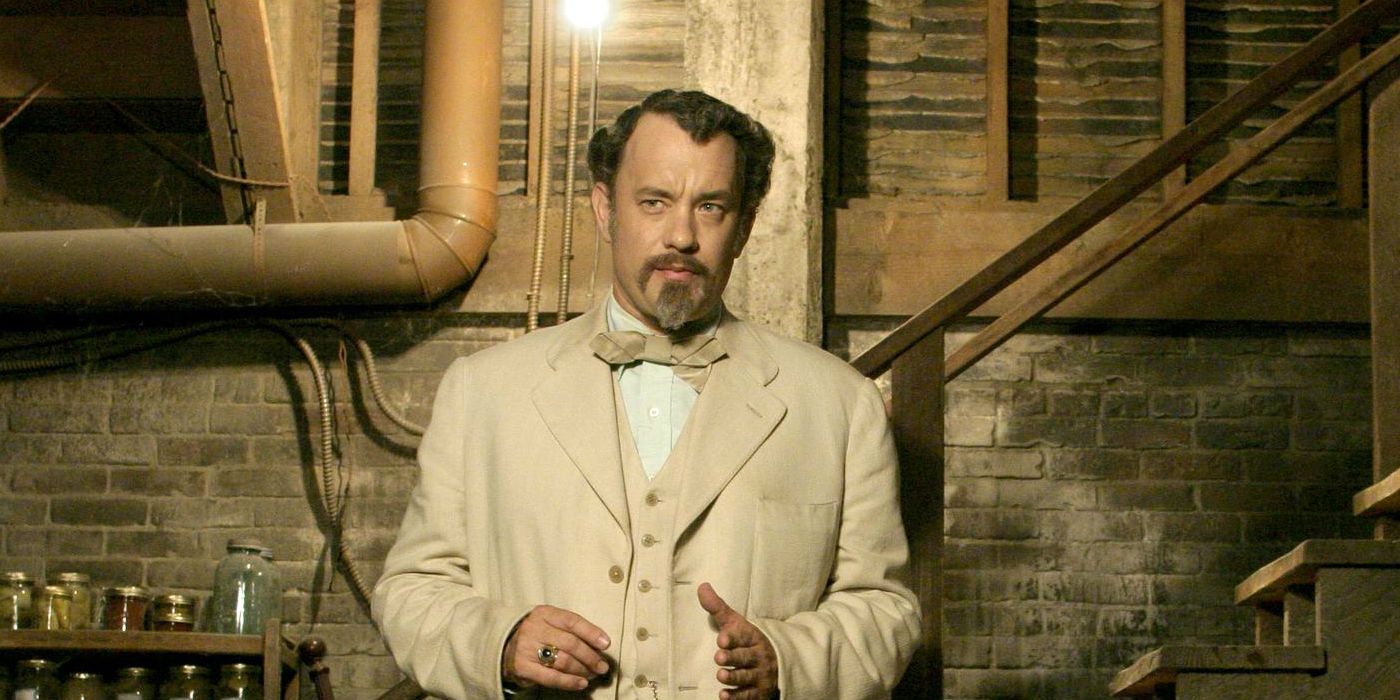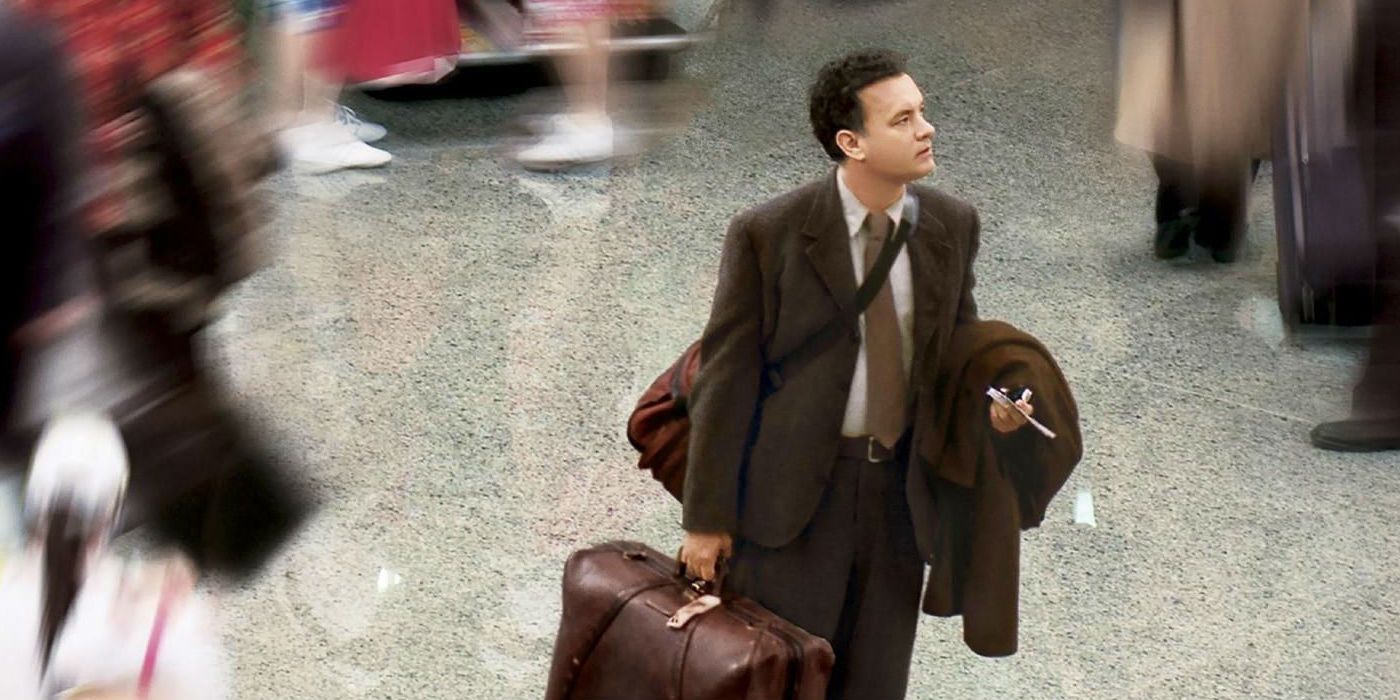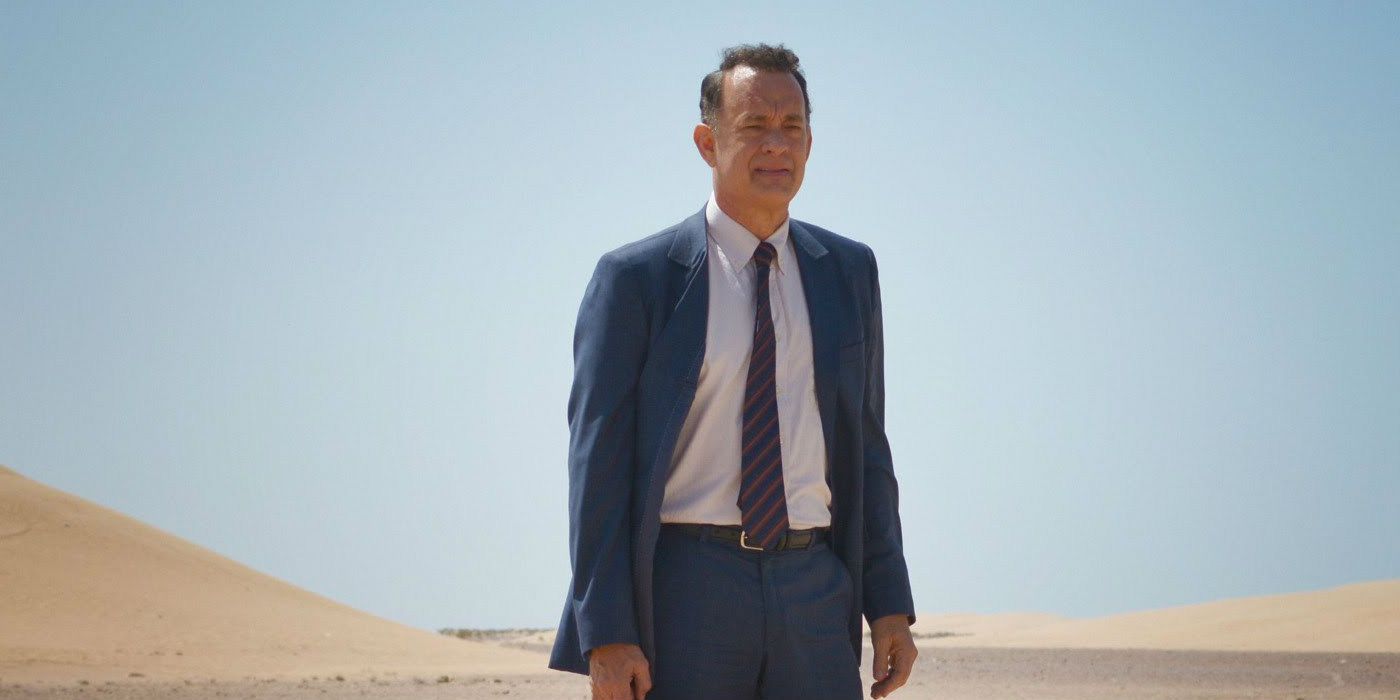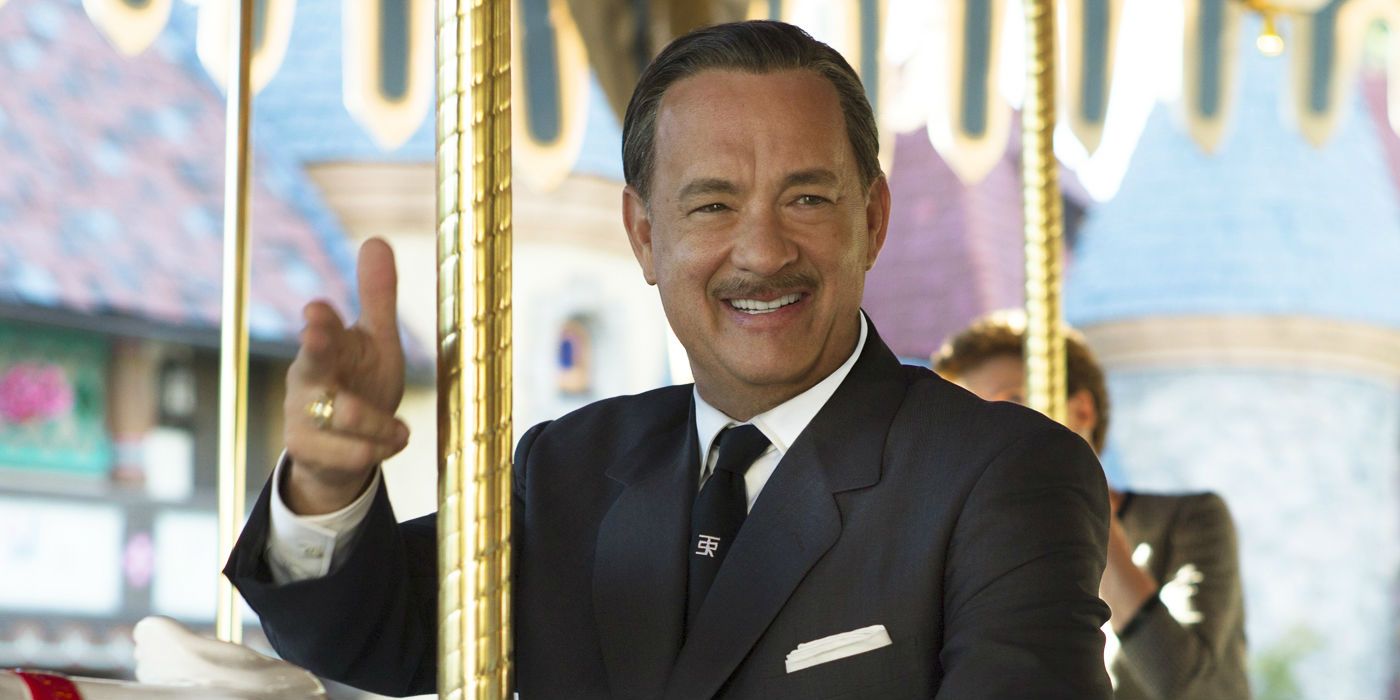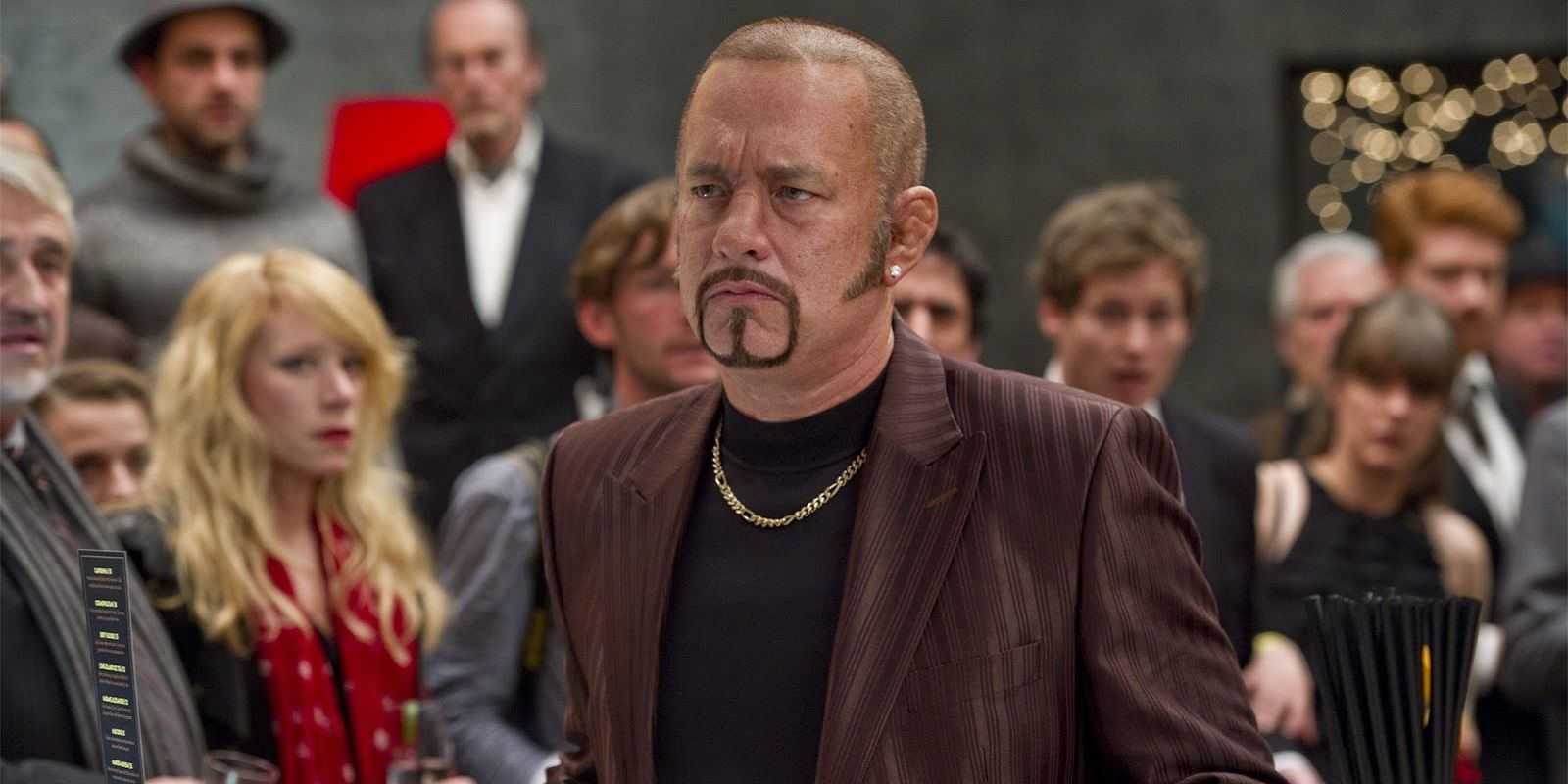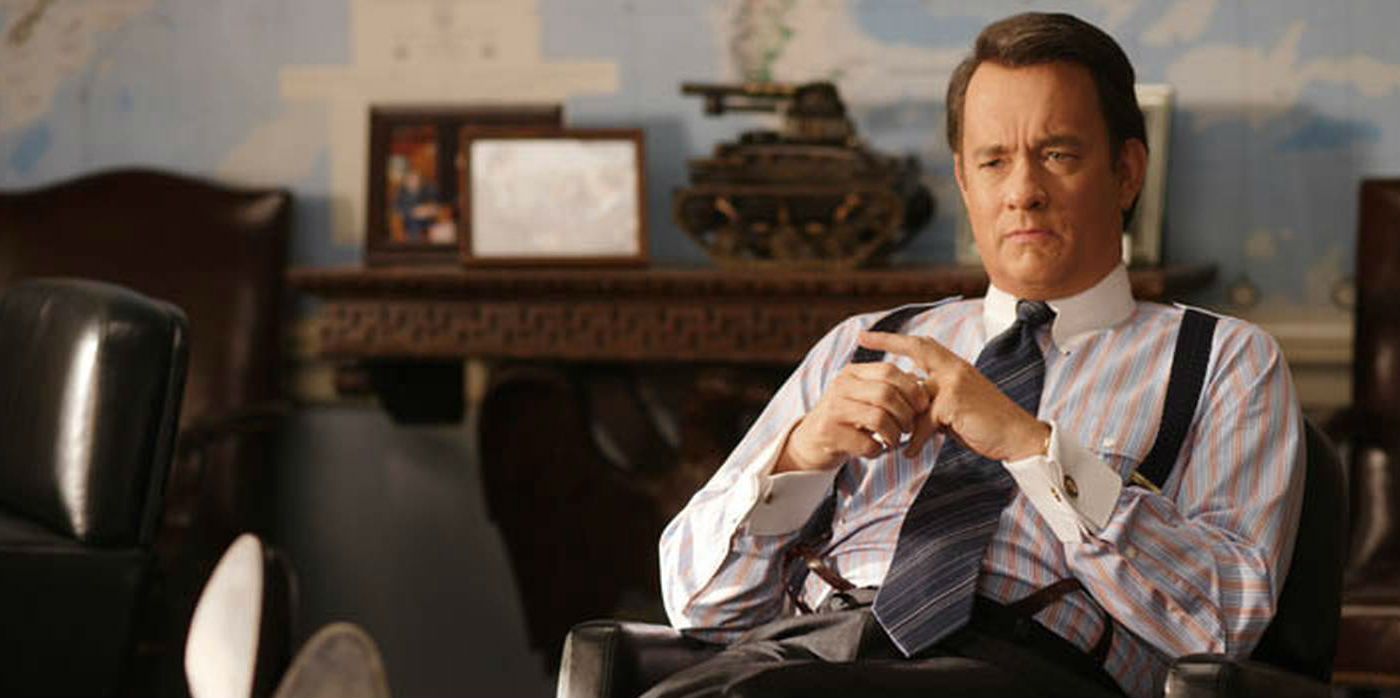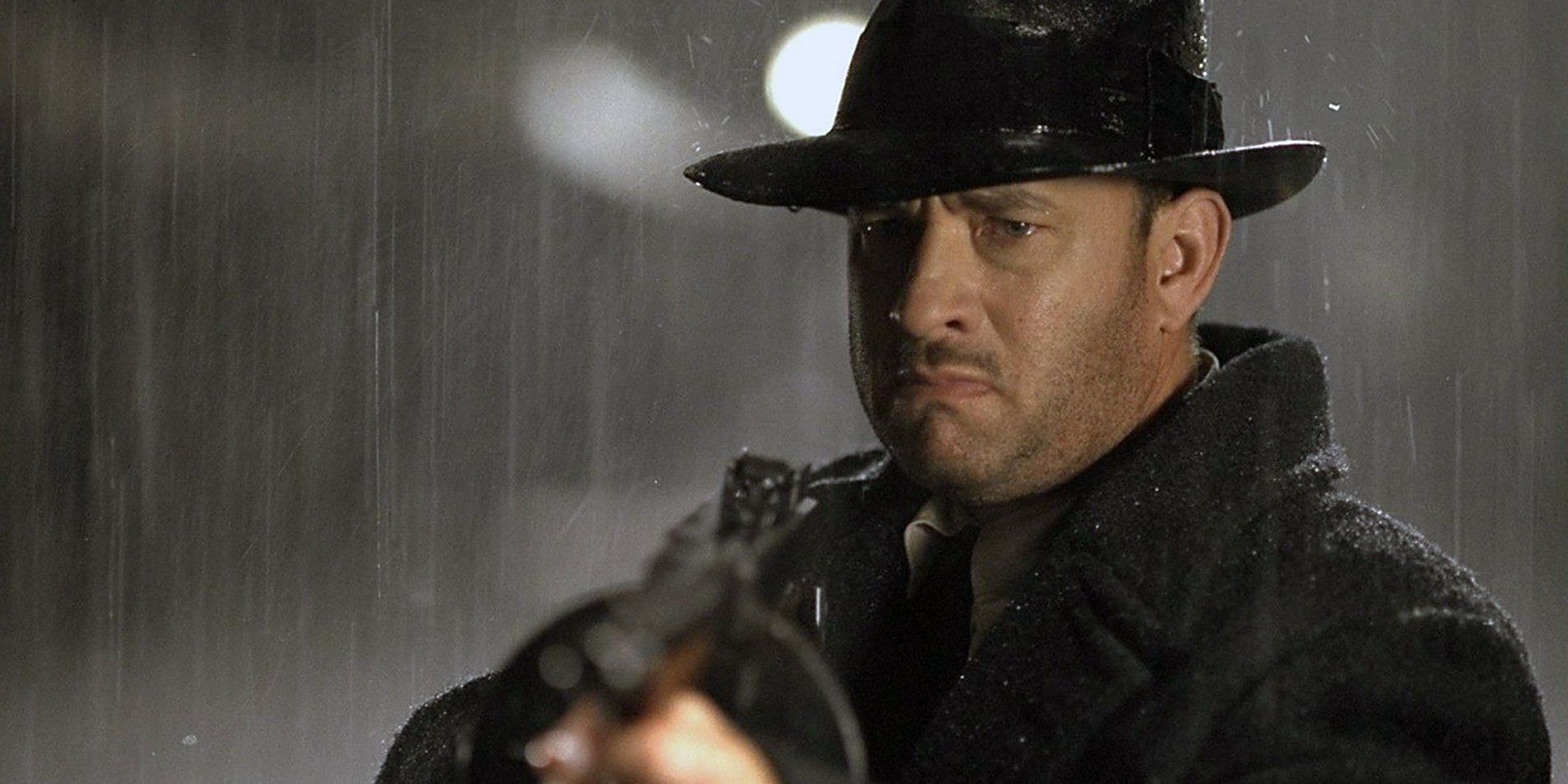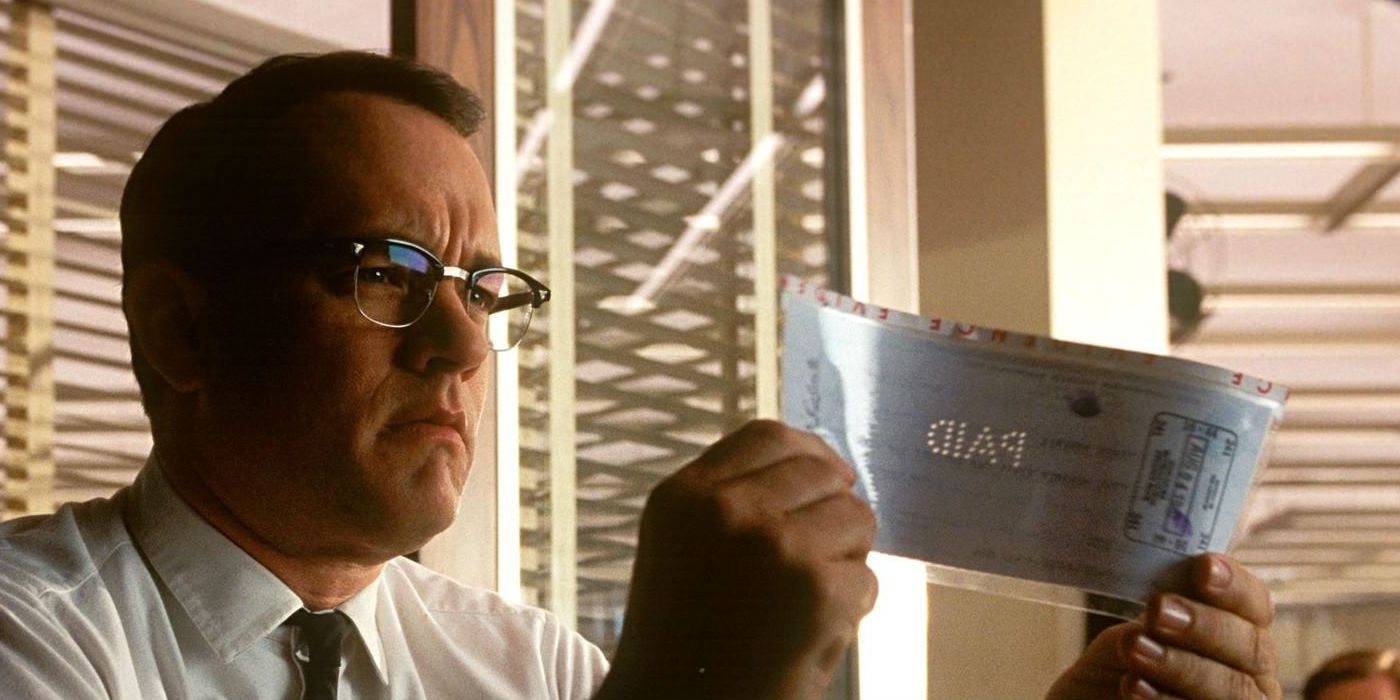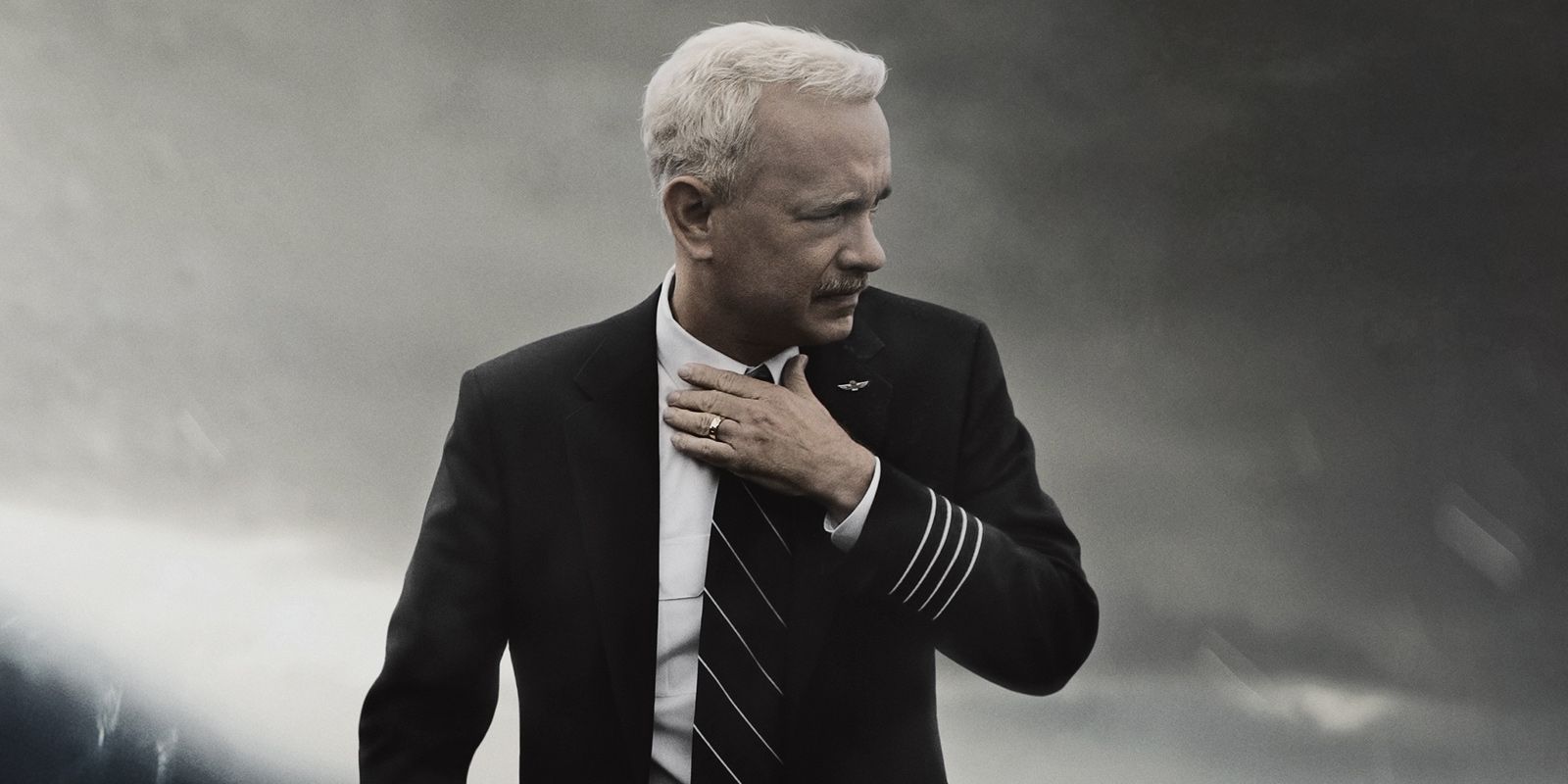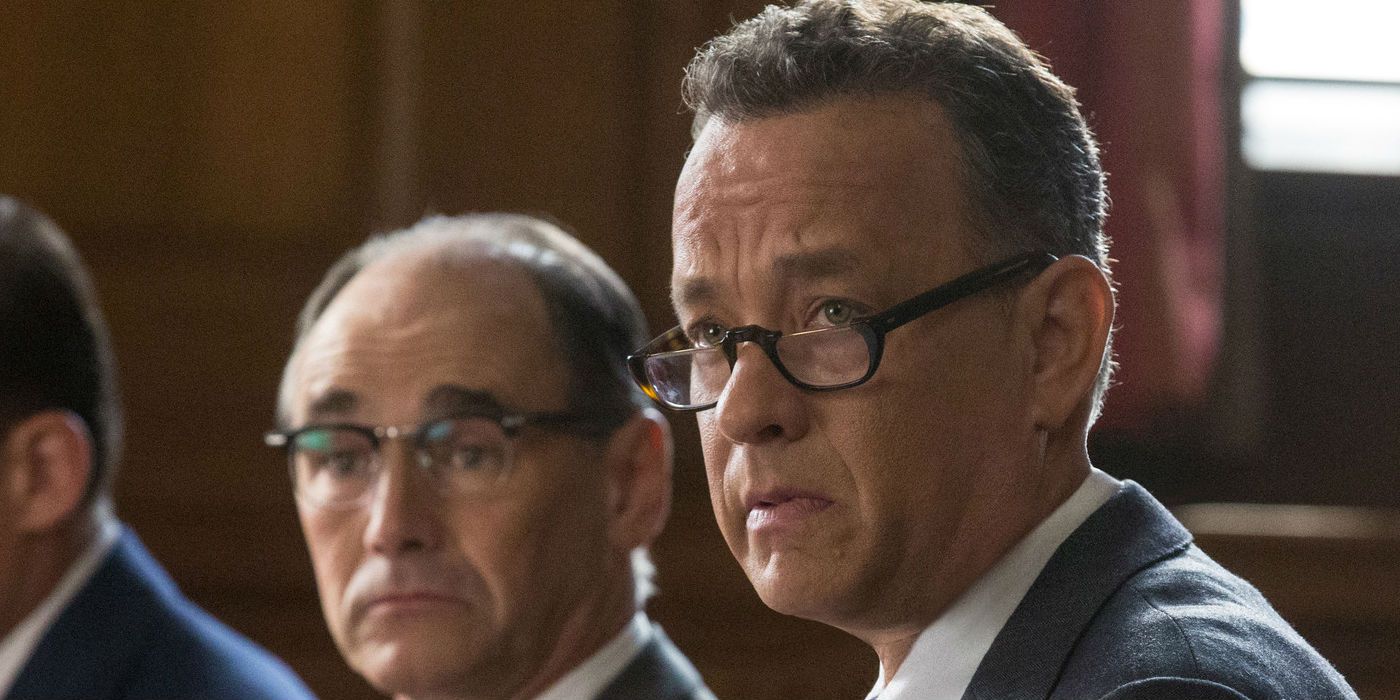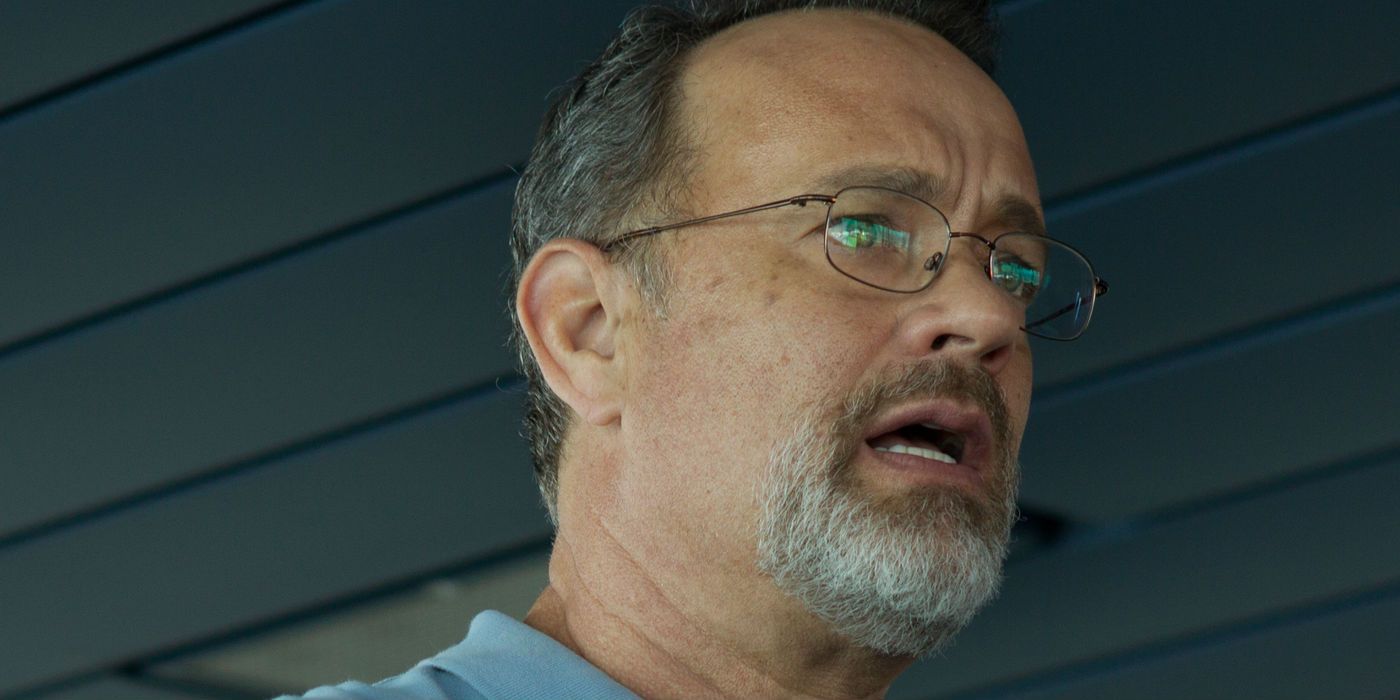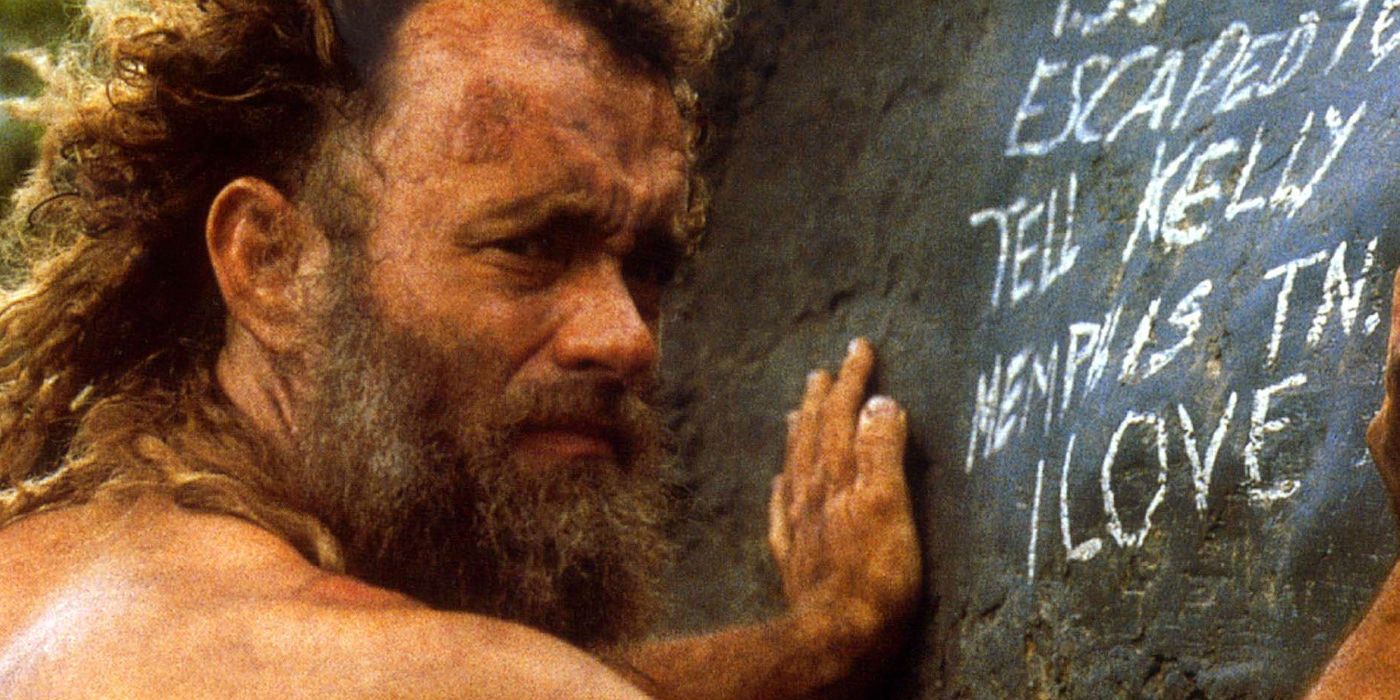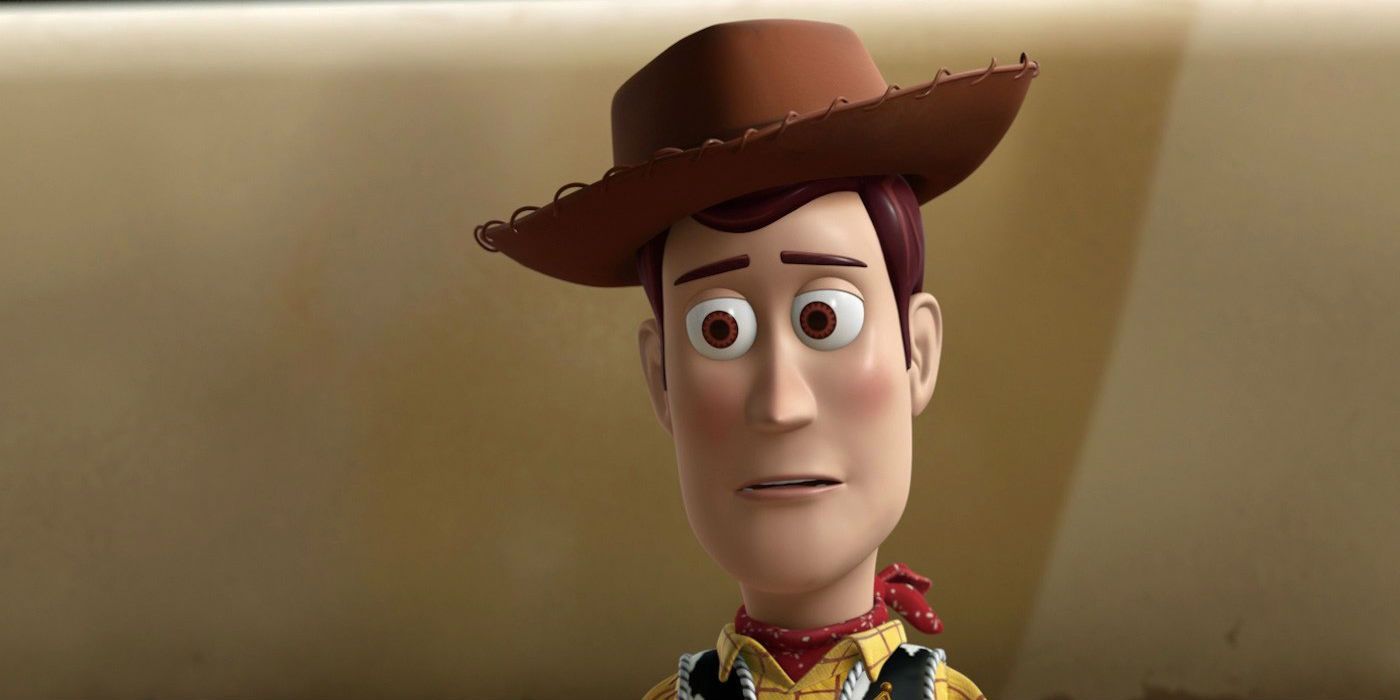You would be hard pressed to find an acting filmography more vital and varied than the one Tom Hanks has pieced together through the past three decades. Hanks’ IMDB page is an unyielding onslaught of quality. Iconic '80s comedies give way to standard-bearing romcoms, all peppered throughout a larger base of award-winning prestige dramas, understated thrillers, and two lucrative franchises.
Even the films that merely feature Hanks’ voice work easily rank among the best animated offerings in recent memory. There isn’t an actor or actress on planet earth that doesn’t occasionally swing and miss. But Hanks’ batting average is truly exceptional – the nineties were a boon for the actor, with three Best Actor nominations (Philadelphia, Forrest Gump, Saving Private Ryan), including back to back wins in '93 and '94. And those are just the '90s films he wasn’t nominated for. Toy Story, You’ve Got Mail, Sleepless in Seattle, Apollo 13, The Green Mile, and A League of Their Own all hit theaters within that ten-year stretch. The word impressive doesn't quite do it justice, does it?
If Hanks didn’t top himself in the 2000s, he at least came close. With Sully in theaters this weekend, we are evaluating Hanks’ work since the turn of the century.
Here are Tom Hanks 15 Best Movies Since 2000.
15. The Simpsons Movie (2007)
Okay, so maybe this one is a stretch. But Hanks’ brief appearance in The Simpsons Movie remains one of the most memorable parts of a film that that was received with overall praise.
In the film, Hanks skewers his own squeaky-clean public image, appearing on screen as a disingenuous spokesperson for “the new Grand Canyon.” He introduces himself in the advertisement by claiming the government is “borrowing his credibility”, and tussling a child’s hair on request. He signs off the ad saying “If you’re going to pick a government to trust, why not this one?”
The bit smartly, if predictably, plays off the common perception of Hanks, as a person you would unconditionally trust to watch your kids. His reputation as a political activist and all around good guy, ones that's been firmly established over the years, is sent up very nicely here. The film cements its subversion in a brief post-credits sequence that features Hanks pleading with audiences to leave him be when they see him in public.
14. Extremely Loud and Incredibly Close (2012)
Extremely Loud and Incredibly Close has a strange, difficult legacy. The film received reviews that could charitably be called “mixed”, with critics either finding it to be crassly exploitative of a national tragedy and overtly pandering for award consideration, or earnest, heartfelt, moving, and capably produced. As with most things, the truth is probably somewhere in the middle.
You may read this entry and wonder why such a divisive film would even feature on a list of an actor’s best. But it’s a testament to Hanks, though, that the worst (to some) of his best work is still a film that is well-liked by many, and in fact was nominated (surprisingly) for a Best Picture Oscar. It’s as though Tom Hanks’ misses are merely foul balls, instead of embarrassing whiffs.
Getting back to that award nomination – there is a funny dynamic that is almost certainly at play with a film like Extremely Loud and Incredibly Close, wherein an initial overrating leads to a delayed underrating. Today, the film is mostly remembered as an unfair and unjust inclusion in an arbitrary awards procession, instead of what it is: a somewhat hammy, potentially insensitive, but nevertheless well-made and well-acted, bit of shiny awards fodder.
13. The Ladykillers (2004)
The Ladykillers is a pretty unremarkable Coen Brothers offering compared to the rest of their catalog. So let’s change gears, and talk here about Hanks as a collaborator, and as a ‘type’.
Tom Hanks almost comically high success rate is in many ways tied to the company he keeps. He isn’t a divisive actor, he’s not a provocateur. Hanks, for the most part, makes films that – the outrageous quality of their production and performances notwithstanding – are easily digestible. That’s how you become an acting monolith, a national treasure. Frequent collaboration with a transcendent auteur in Steven Spielberg and a highly skilled craftsman in Ron Howard have allowed Hanks to develop a particular brand of warmth, gravitas, and accessibility that is uniquely and solely his.
All of this makes The Ladykillers not only a jarring change of pace, but also a much needed curveball in Hank’s oeuvre. Joel and Ethan Coen direct films with a sensibility that couldn’t be further from Spielberg, Howard, or Robert Zemeckis. Their characters are zany, bizarre, and surreal. Their plots are tonally askew and convoluted to the point of meaninglessness. It shouldn’t necessarily work with an actor like Hanks. and yet, the best thing about The Ladykillers may have been his performance. Go figure.
12. The Terminal (2004)
The Terminal is a film in which Hanks plays Viktor Navorski, who travels to the United States from a fictional Eastern European nation only to find that he is barred from entering the country. In an even more unfortunate turn of events, due to a political uprising during his flight, his homeland has been officially dissolved, which means that he can't even turn around and head home. The film, as far as Spielberg/Hanks collaborations go, is small and light fare, with the touch of the earnestness that characterizes each of their filmographies. But as Hanks movies go, The Terminal is quietly notable.
Hanks has to do an accent in The Terminal -- an odd mish-mash of Eastern Bloc broken English -- resulting in the most notable bit of voice modification the actor has taken on since Forrest Gump. As with Gump, Hank’s accent is vibrant, but entirely unobtrusive. His character in The Terminal is morally incorruptible, but quiet about it. Viktor isn’t loudly principled, he just… is what he is.
Hanks is uniquely equipped to play this brand of innocent sweetness, without allowing for a comical affectation to corrupt the film’s soul. The Terminal may not be an all-time great Hanks film, but it is an excellent example of the actor’s singular skill set.
11. A Hologram For The King (2016)
Did you know A Hologram for The King exists? Perhaps you recently noticed the film when it popped up as being available for rent in your iTunes account? Or maybe you heard about it in some Sully-related Hanks piece (like this one), published over the past few days? The fact is, it’s very likely that your answer to question one was “no.” It’s not your fault; A Hologram for The King is the lowest grossing film to feature Hanks in a starring role since 1986.
Whoever one does fault in the entirely underwhelming commercial performance of A Hologram is most likely not named Tom Hanks. He's easily the best part of the film, a classic fish-out-of-water story about an American businessman who struggles to adapt during a trip to Saudi Arabia.
In addition to being a quality Hanks performance, this film is also indicative of a quiet trend in Hanks’ career. He is a mass-market monster, for sure, regularly churning out outstanding performances in big, important films. But A Hologram for The King belongs alongside The Ladykillers as an example of Hanks’ daring. As written earlier, he may never be a provocateur, but Hanks takes smart risks in choosing smaller films, movies that reveal his sensibilities as an artist and craftsman.
10. Saving Mr. Banks (2013)
There really isn’t any other actor who could represent Walt Disney the man but Tom Hanks. Disney, a person who in real life was not without his flaws, is the principle character in Saving Mr. Banks, a film about the production of Mary Poppins. In it, Disney purchases the rights to Poppins from its original author, and helps soothe some of that author’s scars, left by a hard early life. In Saving Mr. Banks, Disney is both a savvy businessman and earnest imagineer.
Two things about this: first, Walt Disney ceased to be just a person many decades ago. He has morphed into a faceless monolith, whose name now represents one of the most successful media conglomerates in the world, but Hollywood simultaneously holds him up individually as representative of the power and wonder of filmmaking. He is an industry unto himself, but he is also a man who actually really existed and who holds a special place in the history of the medium.
Second, Walt Disney, the man, has been the subject of never-ending shifts in perception since his death. Once universally considered a tribute to entrepreneurship and spirit, a creator of art, Disney has since been reexamined by some as a populist, an imperialist, and a commodifier of art. Each and every thing written above him is true in one way or another. Walt Disney, the man, was complicated.
Who better to repackage him in a film without ever inducing a groan or an eye roll than Tom Hanks?
9. Cloud Atlas (2012)
There’s a solid chance that, reading this, you either believe Cloud Atlas should rank much higher, or that it should be off the list entirely. The film was, and still is, that polarizing. Because critical consensus was in some part used to craft this list, this film couldn’t rank higher than it does. But Cloud Atlas is not only a singular entry in Tom Hanks’ filmography, it is, for better or worse, a singular film in the history of the medium.
Cloud Atlas, which you must know by now, is a ridiculously ambitious look at six storylines, spread out over the centuries, starring actors that appear as different characters in each of the storylines. It is a film that probably needs to be watched twice to start, and should be revisited every ten years or so. Because one of the camps (“this film is trash” vs. “this film is genius”) is right, and only time will tell which.
In many ways, this is the most unique role in Hanks’ entire catalog. It's ambitious in ways that even huge films like Saving Private Ryan and Apollo 13 were not, and it is a singularly demanding performance for an actor. Hanks was, naturally, almost universally praised for his performance in the film.
8. Charlie Wilson’s War (2007)
If this list is revealing anything, it’s that Hanks is actually a bigger risk taker than the usual perception of him (as America’s charming but mild-mannered, sweater-wearing, dutiful neighbor) would seem to reflect. How else could you explain Charlie Wilson’s War, where Hanks plays a playboy Congressman who does things like hangout in hot-tubs at parties fueled by cocaine and booze, or staff his office exclusively with comely women with whom he is extremely suggestive?
Hanks’ character, Charlie Wilson, does find some redemption in the film. This redemption comes less from what he does, and more from his choosing to do something other than drink and philander. But it’s redemption nonetheless. Wilson makes it his mission to properly arm Afghani guerillas against the Soviet Union (the film is set in the '80s), an effort that becomes part and parcel of the Reagan Doctrine.
The film nimbly avoids any connection between this armament and the eventual rise of armed militants who would attack this country years later, instead focusing on Hank’s character throughout the film. Hanks pulls off both sides of Wilson – the charismatic partier and the driven politician – with ease and skill, making this one of his most underrated roles.
7. Road to Perdition (2002)
Road to Perdition stars Hanks as a hitman named Michael Sullivan who works for John Rooney (Paul Newman), an Irish Mob Boss in Illinois. Rooney took in Sullivan as a child and treats him like a son, favoring him over his own son, a veritable psychopath played by Daniel Craig. The film’s plot is driven by Daniel Craig’s character’s actions, after he wrongs Sullivan and goes into hiding. Sullivan desperately tries seeks revenge, but is unable to find allies among the businessmen who, while sympathetic to his cause, mostly consider him an unfortunate loose end that needs to be eliminated.
Road to Perdition, at the risk of sounding trite, is as much a film about the bonds of fatherhood as it is about the bonds of omerta, and as such requires performances that are imbued with pathos. Hanks is technically a bad man in the film, but his performance makes him an undeniably sympathetic figure. It’s a testament to the actor’s most important skill – the outstanding ability to act while retaining whatever innate, recognizable quality it is that makes Tom Hanks... Tom Hanks.
6. Catch Me If You Can (2002)
Catch Me If You Can is a Leo DiCaprio movie, no doubt about that. But DiCaprio’s Frank Abagnale, a magnetic, lonely savant, would have been on an island without Hanks’ determined, empathetic FBI agent chasing him. The two are heavyweights in the film, holding each other up with performances that match one another in subtlety and complexity.
In Catch Me If You Can, Abagnale is a teenage con-man who fuels his independence by forging checks and credentials. He is technically a criminal, but his crimes are (sort-of) victimless, or at least the film tonally portrays them as such. Hanks plays Carl Hanratty (maybe his best character name), an FBI fraud investigator who doggedly chases Abagnale across the globe, simultaneously hunting and developing a begrudging respect and pity for him.
Catch Me if You Can, because of how it is structured morally, is like a nuclear launch. Two keys have to be put in, and turned by two separate people. Spielberg uses Hanratty as an audience surrogate – to get viewers to regard Abagnale in the way he wants, they have to use Hanratty’s eyes to view him. It might be best remembered as a classic DiCaprio film, but Catch Me if You Can wouldn’t have worked without Hanks.
5. Sully (2016)
Sully portrays the real life heroic crash landing of U.S. Airways Flight 1549 into the Hudson river, which was piloted safely into the water by Chelsey Sullenberger after hitting a flock of geese and losing both engines.
Sullenberger is portrayed in the film as a quiet workman, if not a reluctant savior; an everyday hero who never imagined bearing the title. The film was directed by Clint Eastwood, himself a quiet workman, and stars Hanks in the titular role. Hanks himself is perfect for the part – recognizable enough to lend the film importance and prestige, but understated enough to blur himself into the role he plays.
The film opened this weekend, and has so far performed well both with critics and audiences. Hanks’ performance in particular is receiving praise and very likely will garner him award nominations. Read our full review here.
4. Bridge of Spies (2015)
Bridge of Spies should exist fresh in your memory – just last year, it was nominated for six Academy Awards, including Best Picture. It was the seventh Hanks-led film to receive the nomination. Bridge takes advantage of Hank’s uniquely relatable persona; in the film, he plays a lawyer who is tasked with facilitating a spy trade with the USSR at the height of the Cold War, in the 1960s. Hanks’ character is successful in his career, but this level of operation is wildly outside of his experience.
The film works so well because (in addition to outstanding direction and supporting performances), Hanks sells the drama of the entire negotiation. Ostensibly about two governments completing what should be a routine (if clandestine) transaction, the film takes on an additional layer of danger and suspense that is engineered almost entirely by Hanks’ performance. His character feels a sense of duty, having been given such a huge responsibility, but is somewhat diffident and overmatched throughout the film’s early going. It isn’t until that resolution that you realize how amazing the feat you just witnessed truly was, and that you realize how worried you were for Hanks the entire time.
3. Captain Phillips (2013)
Captain Philips and Bridge of Spies fit nicely together as Tom Hanks vehicles that nominated for Best Picture. Hanks is a consummate professional in each, emotionally steering the films with his performances. He was also upstaged (for awards consideration, at least) in both by less nuanced performances by lesser known actors.
In Captain Philips, Hanks is virtually the only known actor on screen for much of the running time. He is a beacon of classic acting skill, surrounded by a powerful cast of unknowns playing Somali pirates. His performance, especially in the film’s denouement, is a tour de force in every sense. And yet, he wasn’t nominated in an acting category alongside his support, proving that we as a movie-going culture probably collectively take Tom Hanks for granted.
The film puts Philips in peril until the very end, a device made even more powerful by both Hanks the performer and Hanks the person. After 30 years on our screens, Tom Hanks has become such a well-loved and recognizable feature that, even when capably portraying someone else, his public persona can’t help but also appear on screen, like a vaguely recognizable shadow behind his character. In Captain Philips, as with many of his films, that fact is used to great effect.
2. Cast Away (2000)
Any proper movie star should be able to carry a film by themselves. With the exception of one charismatic volleyball, Tom Hanks did exactly that in 2000’s Cast Away. The film, another collaboration between the actor and director Robert Zemeckis (Forest Gump, Polar Express), mostly follows Hanks’s character as he struggles to survive alone on a deserted island for four years.
Films like these face, in addition to the logistical choices that define any production, have a giant obstacle in their conception. How do you keep the audience’s attention even though they are only watching one person? Which is where your performer comes in. Without anyone with speak to (sorry, Wilson), you must have actor or actress skilled and engaging enough to compel audiences completely on their own. Hanks, with Cast Away, once again proves himself to be an invaluable tool for filmmakers. We've already stated that, collectively, we may take Tom Hanks for granted, and Cast Away is just more evidence of that fact. There are only a handful of performers that could make this film as powerful as it was, and Tom Hanks may just be the best of them.
1. Toy Story 3 (2010)
We’ll leave it to you decide whether you count Toy Story 3 as a Tom Hanks movie. We do, and here’s why.
First of all, he’s the top billed star of the show, even if it's only his voice. Secondly, his character in the Toy Story film has become an instantly recognizable, iconic character not just in the history of animated film, but in cinema itself. Woody is the Toy Story franchise, and he is fully realized and surprisingly complex. Lastly, this film was just too big and too good to leave off. It is without a doubt the most critically acclaimed of any of the films on this list, as well as the most financially successful.
In 2010, Toy Story 3 became just the third animated film nominated for an Academy Award for Best Picture. It grossed over $1 Billion worldwide, making it the fifth most lucrative film of all time. There is a very real case to be made – and we say this with minimal irony – that after Toy Story 3, the Toy Story trilogy is one of the two or three best trilogies in film history. We can't wait for the fourth adventure.
---
What's your favorite Tom Hanks movie of this century? Let us know in the comments!

